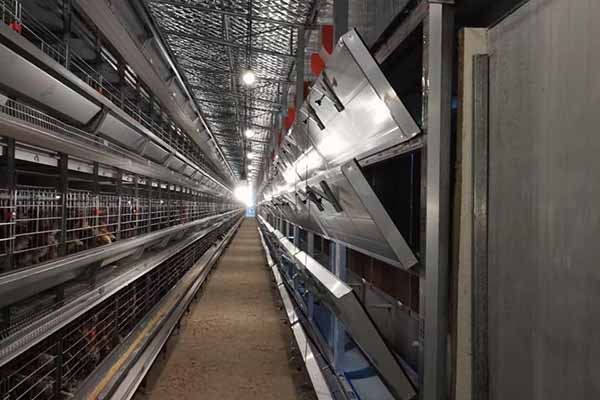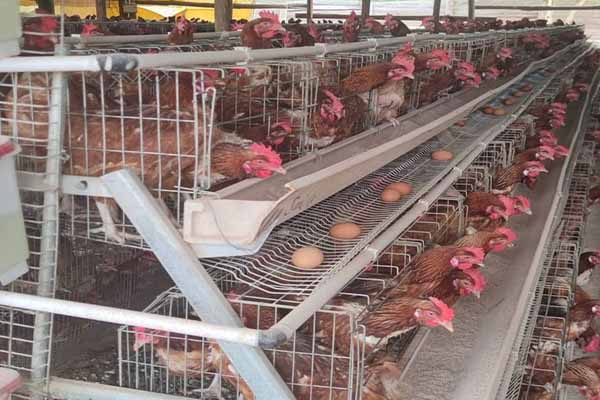Optimizing Egg Production with Layer Chicken Cages in Nigeria for Egg Farms
Time : 2025-06-29
In the dynamic and ever-growing poultry industry of Nigeria, the use of layer chicken cages has become a cornerstone for efficient egg production. This article delves into the importance of using layer chicken cages in Nigeria for egg farms, providing insights into the benefits, types, and considerations for implementing these specialized poultry equipment.
The Significance of Layer Chicken Cages in Nigeria’s Egg Production
Nigeria, with its vast agricultural land and abundant resources, has seen a surge in the poultry sector, particularly in egg production. Layer chicken cages play a pivotal role in this success story, offering several advantages:
- Improved Egg Quality: Cages provide a controlled environment that minimizes the risk of egg contamination and maintains consistent temperatures, leading to higher-quality eggs.
- Enhanced Animal Welfare: Properly designed cages ensure that hens have adequate space for movement and can lay eggs comfortably, reducing stress and promoting better health.
- Increased Productivity: Cages optimize the space, allowing for a higher density of hens per square meter, thus increasing the overall egg yield.
- Reduced Labor Costs: With automated systems, the need for manual handling is minimized, leading to lower labor costs and increased efficiency.
Types of Layer Chicken Cages Suitable for Nigerian Egg Farms
Selecting the right type of layer chicken cage is crucial for the success of an egg farm. Here are some of the most common types used in Nigeria:
Horizontal Battery Cages
Horizontal battery cages are one of the most popular types in Nigeria. They feature four to six hens per cage and provide enough space for the birds to stand, turn around, and lay eggs. These cages are also equipped with a feed hopper and a watering system.
Vertical Battery Cages
Vertical battery cages are a space-saving alternative to horizontal cages. They can accommodate up to 12 hens per cage and are suitable for farms with limited space. These cages are often stacked vertically, allowing for efficient use of the farm’s vertical space.
Free-Range Cages
Free-range cages provide hens with the opportunity to move around more freely, which can improve their overall health and egg quality. These cages are typically larger and have more perches and feeding areas to simulate a natural environment.
Considerations for Implementing Layer Chicken Cages
When implementing layer chicken cages in Nigeria for egg farms, several factors must be considered to ensure optimal performance:
Design and Construction
The design and construction of the cages should be based on the specific needs of the hens. Factors such as the size of the cage, the spacing of the bars, and the materials used should be carefully considered to ensure the comfort and safety of the birds.

Environmental Control
Effective environmental control is essential for  maintaining the health and productivity of the hens. This includes regulating temperature, humidity, and air quality within the cages.
maintaining the health and productivity of the hens. This includes regulating temperature, humidity, and air quality within the cages.
Automated Systems
Integrating automated systems such as feeders, waterers, and egg collection systems can significantly improve the efficiency of egg production. These systems reduce labor costs and minimize the risk of errors.
Health Management
Regular health checks and appropriate veterinary care are crucial for maintaining the health of the hens. Proper management of disease outbreaks and vaccination programs are also vital components of health management.

Conclusion
Layer chicken cages have proven to be an effective tool for optimizing egg production in Nigeria. By carefully selecting the appropriate type of cage, considering the design and construction, and integrating automated systems, egg farms can achieve higher productivity, better quality eggs, and improved animal welfare.
Implementing layer chicken cages in Nigeria for egg farms is not just a trend; it is a strategic move that can help the poultry industry to grow and meet the increasing demand for eggs in the country.











